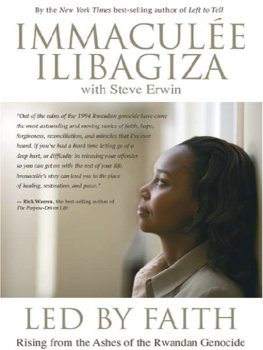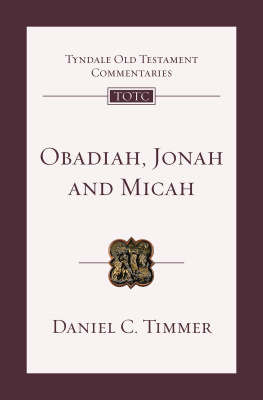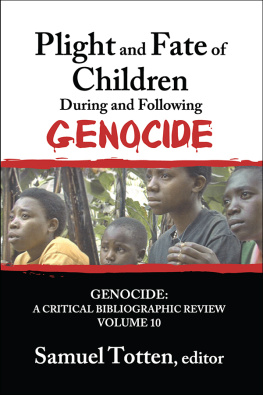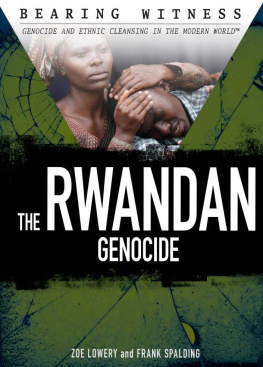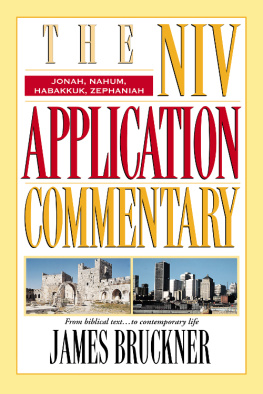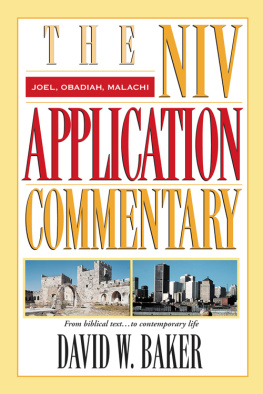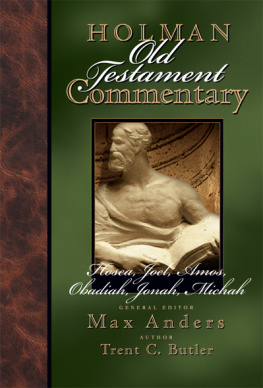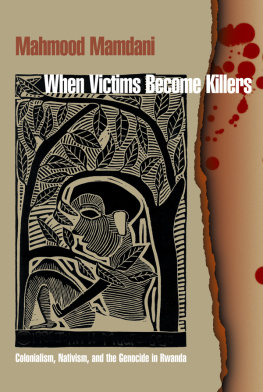
Even though the leg cuffs pained my ankle, I enjoyed walking through the snow. A lot of it had fallen in the night. I didnt like the cold, but I liked the snow very much. Sometimes, driving around with my friend Smith in North Dakota, I would be mesmerized staring out the window at all the falling snow. Hypnotized, I would fall asleep, just like that, in the passenger seat of his car.
I squinted ahead of me and spotted Cabrera further up in the line. I had never seen him as upbeat and confident as he looked that morning. When the buzzer had gone off at 3 a.m., he was already standing with his back against the wall of the cell, twisting the ends of his thick dreadlocks. He had a way of smiling that made his beard seem to vibrate.
The inside of the bus was even colder than outside. There must have been something wrong with the heating system, because the last time I was in that bus I had felt myself cooking like a brochette. Sitting down was a relief for my ankle, though. When I walked, the metal cuff tended to rub up painfully against my ankle bone.
Once we had been on the freeway for a while, a lot of the passengers fell asleep. Their heads bobbed and nodded in unison like the members of a choir. Cabrera was one of them, his dreadlocks bouncing in his lap. I studied the sleeping faces. Some of these guys had been separated from their families for years, most simply because of papers.
Outside, the landscape was only shades of white and black and grey. Snow lay thick on the embankments and capped every bridge and dark, barren tree. If I leaned back and twisted my neck, I could just make out part of the downtown skyline.
I had been to Chicago before. I was amazed by it: the skyscrapers, the roads, the railways everything so big and so well made. If human beings could build a city as wonderful as this, how beautiful will be the one finally built by God. I told myself again that there is nothing in this life worth holding on to except a cast-iron belief that a better world is still to come.
Homeland Security is housed in a massive brown building in a downtown neighbourhood close to the lake. The lakes water was frozen with the season, and the wind that hit us when we climbed out of the bus brought ice into the bone.
We were body-searched in a narrow room and then, once our shackles had been removed, divided according to our purposes: me, to await my deportation hearing. The room I was taken to was at the end of a corridor in the basement. It was a square, cramped space with fluorescent lights running the length of the ceiling. There were ten or twelve men already waiting, some bent into seats bolted to the wall, others lying on the benches in the middle, trying to sleep. There was a toilet in one corner, and I stood on the opposite side, my back to the wall, as far from the stench as I could get. Strong smells like that always brought to mind memories of the forest.
Sometimes I imagined how this interview might turn out. In those daydreams I would tell them that if they wanted to send me back to Rwanda, they should please just shoot me instead and send my corpse to wherever they thought it belonged. I would tell them I had suffered too much already at the hands of my government. I needed not ever face them again. One day, when she had listened to my story, my daughter would understand.
One
the garden
We had a vegetable garden next to our house where my mother taught us the rudiments of farming. We lived in the village of Kampi, high in the Rwandan hills bordering Zaire, as the Democratic Republic of the Congo was then named. A region of volcano peaks, lush valleys, and patchwork fields in an array of greens and browns and reds. Maman understood the soil, which was rich but tough to work. She was familiar with the requirements of many different plants.
I liked to work alongside her in the garden, except when it came time to spread the compost she made from food scraps and animal excrement. Then I would hold my nose and protest. She would laugh at me. You like good stuff to eat, but you dont want to see where it comes from.
My younger brothers and I had to help her with other things too. Chores around the house: sweeping floors, washing dishes and clothes. In our culture, at the time, this was considered girls work, but because all four of my parents children were boys, we had no choice. You have to help me, she said, if we ever complained about it. You are my sons and my daughters.
She had been born to Rwandan parents across the border in Zaire. When she was a teenager her father, my grandfather, had brought the family home to Rwanda so that he could study at the Bible school on the shores of Lake Kivu. Some years after he graduated, my grandparents had gone back to Zaire. They lived there still.
The Christian faith was strong on both sides of my family. My dads faith was deep and infectious. He had worked as the high schools chaplain for as long as I could remember. A few years earlier, in 1991, he was also appointed as travelling inspector of all schools run by Evangelical churches in the area. For this job, the church had given him a Yamaha AG100 motorbike.
On Tuesdays, he went to Gisenyi, a lakeside town on the border with Zaire. Gisenyi was a major crossing point between the two countries, with lots of goods and people flowing through it every day, and in the evenings he would always return with fresh fish hed bought in the markets there.
Gisenyi was also home to Mamans younger sister and younger brother, Auntie Peace and Uncle Luc. Luc was only a few years older than me, and if Id been diligent at school, Papa would let me spend some time there with him and Auntie Peace.
I looked forward to those visits a lot, not least because they had a television set. Luc would borrow VHS tapes from his friends and we would watch movies almost every evening. Chuck Norris was my favourite star. In the first movie of his that I saw, The Delta Force, he played a helicopter pilot. After watching that, I began telling people I wanted to be a pilot too.
My little brother Joel, my closest sibling, used to tease me about my ambitions to fly. He said he had heard from a trusted source that Rwandan pilots earned so little they had to steal fuel to make ends meet. Joel was a quiet person, a lot like Maman, but he had a playful sense of humour. He wanted to be a pastor to continue the family tradition.
I didnt know if he was right about the pilots or not. Of the world outside Kampi, I still really knew very little. And not only because we were village kids, although of course that played a role. My parents, and particularly my father, kept the rest of the world out of our home as much as they could. Maybe Papa thought that in this way he could protect us. Though I had uncles in the military, for example, no one even spoke to us about the civil war, which had been raging in Rwanda now for several years. If the subject of the war did come up, Papa simply said our allegiance was to God and to God alone.
So when one of my classmates worried aloud that the civil war would soon reach us, I felt I could reassure him. My dad will pray and the war will not hurt us.
When I was twelve, our teacher asked all Hutus to raise their hands. In a whisper I asked a friend of mine, who had his hand up, how he knew he was Hutu. He looked at me disapprovingly. You seriously dont know your tribe? Ask your dad and youll find out.
Our teacher, who knew my family, told me to raise my hand.
When I asked my father that afternoon, he dismissed the question. I think he wanted me to discover the answer myself once I was old enough to understand.
Sheltered, yes. Naive, certainly. But for years reality had reassured us. War raged but always elsewhere. Most of the time we could forget that anything unusual was going on at all. One Easter, in 1994, this changed for good.
Next page

